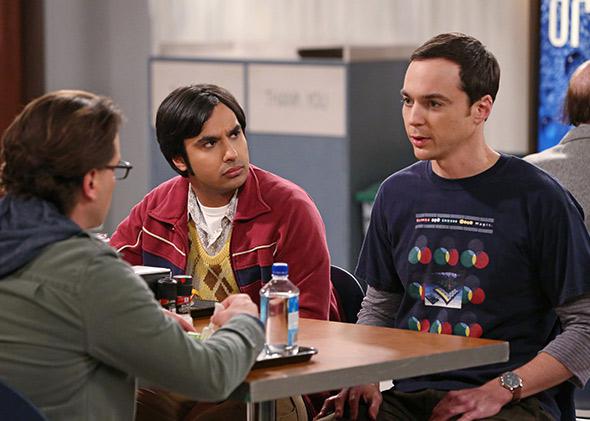A computer geek is someone who has an intense interest, enthusiasm, and aptitude for computers, technology, and computing culture. The term “geek” originated as a pejorative, but has become more positively used over time to describe people who are very knowledgeable, skilled, or passionate about technical pursuits like computers.
Origins of the Term Geek

The word “geek” dates back to the early 20th century as slang referring to a person who was regarded as odd, eccentric, or a social outcast. It was often used to mockingly label people who were very intellectual or obsessed with obscure or niche interests. In the 1970s and 1980s as personal computers became more commonplace, “computer geek” became a popular phrase to describe people who were intensely focused on computing as a hobby.
Over time, the negativity of the word has faded. In the internet age, increased mainstream interest in technology has made “geek culture” more popular and accepted ([1]). Though still often an exaggerated stereotype, today the term computer geek may be used affectionately or self-referentially without the totally derogatory connotations it once had.
Defining Characteristics

Some key qualities associated with computer geeks include:
- Specialized knowledge – An advanced understanding of technical topics like computer hardware, programming, networking, and software.
- Skills – High aptitude for computing tasks like debugging code, building computers, managing servers, or even basic computer maintenance that novices may find difficult.
- Enthusiasm – A passion for learning the technical details of computers and new technologies. Computer geeks take enjoyment from acquiring new skills.
- Competitiveness – They thrive on the sense of achievement from overcoming technical challenges.
- Up-to-date interests – Computer geeks stay informed about the newest computer industry news, research, and product releases.
- Non-mainstream – Mainstream culture has become increasingly digitized. However, geeks remain devoted to more specialized niches and technical subcultures.
Lifestyle and Culture

There are some common lifestyle traits and elements of culture associated with the computer geek identity:
- Intellectualism – Computer geeks value intelligence, competence, and knowledge, especially technical knowledge. Issues are often examined from a scientific lens.
- Social awkwardness – The intense focus on computers means less time socializing, so geeks can seem odd in social situations. Though stereotyped, this isn’t always the case.
- Sci-fi fandom – Geeks may enjoy hobbies like video games ([2]), roleplaying games, cosplay, fantasy like Lord of the Rings, or speculative science fiction genres that envision technological wonders of the future.
- Tech careers – Many geeks pursue careers in fields like programming, network administration, hardware repair, cybersecurity, data science, engineering, or quality assurance testing.
- Computing devices – Computer geeks keep up with the latest tech gadgets and computers for work, play, and tinkering. Custom PCs may be built and configured instead of buying off the shelf.
- Online communities – Websites and forums centering on special interests let geeks connect via chat rooms, message boards, wiki editing, social media groups, multiplayer games, and hobbyist projects.
Changing Stereotypes

Some outdated stereotypes of computer geeks present them as invariably being:
- Male – While males still dominate many technical professions ([3]), increasing diversity initiatives are enabling more women to participate as both hobbyists and professionals.
- Socially isolated loners – Computers provide tools for communication. And attending conventions, conferences, LAN parties, hackathons, or user group meetups give opportunities for in-person social activity around shared interests.
- Obsessed to an unhealthy degree – Compulsive behaviors like gaming or coding addiction do exist. But for most, computers are an enjoyable hobby that enhances rather than replaces life activities. Moderation is key.
- Physically unfit or unattractive – The popular image of overweight, bedraggled, pale-skinned males hunched over keyboards derives from the very first programmers of the 40s through 60s. Today’s tech workers run the whole gamut of body types and appearance.
- Friendless outcasts – There remains some stigma around excessive technology enthusiasm. But in real-world context, geeks have diverse friend groups bonding over common interests.
- unemployed “basement dwellers” – There are healthy and unhealthy manifestations. But channels exist for computer enthusiasts of all ages to transform their skills into careers in today’s information economy.
The “nerd” stereotype remains embedded in pop culture. But as technology continues advancing into all areas of work and recreation, the ubiquity of devices means “geekiness” has become more normalized and inclusive rather than mockingly deviant.
Types of Computer Geeks

While “computer geek” serves as broad catch-all term, more specific labels help identify what kind of geek someone might be:
Hackers – Hackers enjoy understanding systems in depth, exposing vulnerabilities, and being clever in overcoming limitations through modification and customization ([4]). Their reputation is controversial though, as “hacking” legally and ethically refers to white-hat enthusiasts but gets misapplied to computer criminals.
Hardware geeks – This type enjoys learning everything about computer components from circuits to chassis. System building, overclocking, cooling, and modding helps satisfy their tinkering curiosity.
Networking / Sysadmin geeks – Getting computers to communicate reliably provides intellectual challenge. Designing infrastructures, optimizing performance, securing access, and managing servers scratches this geek’s itch.
Programmers – This geek sees coding software algorithms as a creative outlet. They gain satisfaction from crafting elegant solutions and enjoy polishing efficiency and presentation of their code.
Security researchers – Also hackers in the ethical sense, these specialized experts work to identify software vulnerabilities and innovative data protection techniques in order to improve security practices.
Retro computing geeks – This nostalgic type collects, restores, maintains or makes new uses of obsolete computer hardware and software for its historic cultural value. Classic gaming, demoscene art, and period authenticity are passions.
Custom PC builders – This hands-on type loves the process of selecting optimal components to assemble high-powered towers serving specific needs like ultimate gaming graphics or media editing workstations. Appearance customization adds artistic flair.
There are diminishing social barriers today for anyone embracing their inner computer geek, whether as a fun diversion or a lifelong vocation. Ongoing innovation and applications of technology to new spheres continues driving opportunities for geeks to apply their knowledge and abilities.
Did you like this article? Do not hesitate to share it on social networks and subscribe to Tech To Geek on Google News or our facebook page to not miss any articles!"Because of the Google update, I, like many other blogs, lost a lot of traffic."
Join the Newsletter
Please, subscribe to get our latest content by email.

